Can Coupons Be Used Responsibly?
As mothers raising families in a tough economy, we are always looking for ways to save money and make our dollars stretch a little further. Since the beginning of time, mothers have learned to be wise stewards of the limited resources available to them. More recently, many have turned to coupons to help make the most of their family’s hard earned dollars.
Using coupons and taking advantage of sales and other promotions can be valuable tools to help us maximize our family’s budget. I consider myself very frugal and love a good deal! However, I’m noticing that this bargain-hunting mindset, when taken to the extreme, can cause us to lose sight of the big picture.
Much of the coupon/bargain advice and tools out there are reasonable, ethical, and sensible, but I’ve recently stumbled upon a particular hard-core couponing mindset that encourages the idea of “shopping” for free or next to nothing.
I don’t doubt this is possible, but I question why this idea is acceptable. It costs money to grow and raise our food and to produce household goods, so who, if not the consumer of these items, is paying the cost?
A Place and a Purpose for Coupons
In theory, coupons are part of a strategic marketing effort put forth by companies wishing to introduce new products, expand their existing products to new markets, or reward and encourage loyal consumers to continue to buy. The idea of saving a few cents is enough to pique the interest of curious consumers and sometimes lure competitors’ customers into switching brands in hopes the consumer will be satisfied enough to become loyal to their brand instead.
Coupons in and of themselves are not bad. In fact, they can be valuable tools. For example, combining coupons with store sales can maximize savings for the consumer and profit for both the store and manufacturer of the product, as the sharing of the consumer discount minimizes the loss to both store and manufacturer.
This is a realistic part of a free market and it used to work. Lately, though, coupons have been taken out of their proper context and used unfairly. Take, for instance, the idea of stockpiling a product that can be obtained free or next to no cost when coupons are combined with store sales. Coupons are often designed for single use per customer and stores have been known to over-ride this rule in order to stay competitive, knowing that the majority of consumers are not using coupons this way. (As this idea is beginning to take off in the mainstream, stores are starting to adjust their policies to permit coupon use as intended.)
Another way in which consumers sometimes use coupons unfairly is when they take advantage of a coupon “overage”. Using a high-value coupon on the smallest size permitted on the coupon, they will use the “overage” (the difference between the coupon discount and the price of the product when the price is lower) to help cover the cost of their entire purchase. This is a strategy promoted by extreme couponers to be used even on products for which they have no use..
The extreme bargain-hunting mindset, which has the potential to take on a sense of entitlement, has essentially dissolved the idea of brand loyalty as consumers begin to make purchases based on the current low price instead.
Unfortunately, as brand loyalty dissipates, commitment to consumers in the form of quality and service has become a thing of the past. Many companies are learning that to stay competitive, offering the lowest price is all that matters to many shoppers today, where in the past, quality was an equally important consideration. In the race to provide the most competitive price today, the cheapest possible materials are often used.
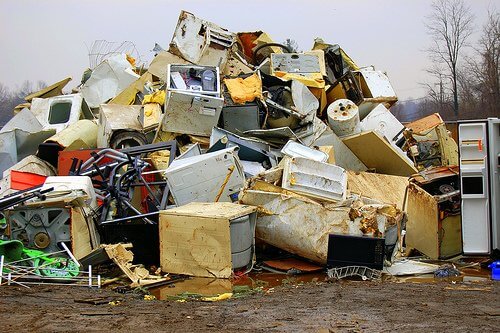
The Consequences
Over time, we’ve come to accept a mediocre product if it means we save a buck or two. Afterall, why would companies dedicate themselves to sourcing quality materials and ingredients for their products if consumers only care about the lowest price and will switch brands at the drop of a hat? We see this in food, clothing, toys, furniture, other household goods…you name it.
For example, we have forgotten that our grandmothers enjoyed heavy duty appliances that lasted decades, with honest and friendly repairmen to make them work like new again when something broke. Today, we have come to expect our appliances to break down after a few years and even find it normal that the cost of buying a brand new one is usually cheaper than paying someone to fix the broken one! And the cost is not in the cheap replacement parts; it’s in the labor (American laborers prefer not to work for next to nothing.)
Clothing that was once sourced from quality fabrics and was handed down from one person to another is neglected in favor of cheap clothes made from poor fabrics and underpaid workers. While some consumers will pay a premium for certain clothing, the value is too often found in the status of the brand name and not the quality of the clothing itself.
Toys used to be passed down from one generation to another, becoming heirlooms full of decades of memories. Today, cheap plastic toys won’t even make it through one child, let alone one generation. Some toys break with only hours of play! But we’ve come to think of this as normal and just buy new toys when old ones break.
There are many types of household goods that are affected by this search for the lowest price, but nowhere is it more evident than with our food supply. Coupons for food are no doubt the most common type of coupon. What is the impact of this and what does this mean for both couponers and non-couponers alike? (Yes, it affects us whether we use coupons or not.)
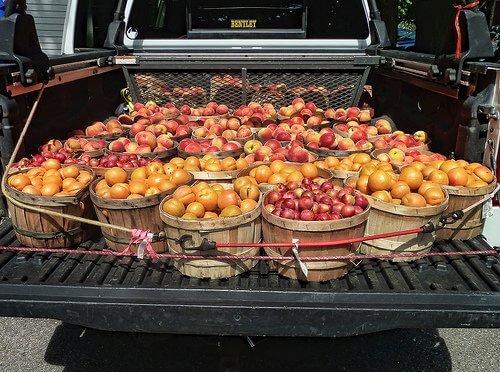
From Farm to Table?
There was a time when most people knew the source of their food and many saw first hand where it came from. Today, many meals that appear at the dinner table are a hodge-podge of a variety of ingredients from all over the place, sometimes composed of food-like products that might resemble the molecular structure of plastic more than that of real food.
Many children today don’t even understand the farming process and have no idea where their food really comes from, aside from a box at the supermarket. With this loss of awareness also comes loss of culture, taste for real food, and skill in food preparation. And on top of all this, we forego our health and our vitality when we become blindsided in the quest for grocery deals.
It takes a lot of hard work on the part of our farmers to grown healthy food in organic soil and to raise healthy animals in the proper environments. It would be much easier to cram as many animals into one space as possible, providing the cheapest possible feed and giving hormones to grow them bigger and fatter and preventative antibiotics to keep them alive in their less than sanitary living quarters. It would be easier for our farmers to just plant genetically-modified seeds that can grow in any soil, rich or void of nutrients need to sustain the plants, knowing that all it takes is potent fertilizers to make them grow and dangerous pesticides to keep them alive. This, of course, is less risky and brings much more profit for the farmer.
Growing food in healthy soil and raising animals in the appropriate environments brings much risk to the farmer and generally reaps a lower profit than that of their convention farming counterparts. It’s no wonder so many farmers have fallen for the easier route and have gone away from humane and sustainable farming methods.When we as mothers no longer place any value on the quality of food we serve our families, farmers have little choice. They simply can’t stay afloat when the demand is not there.
I believe the biggest danger of this coupon frenzy is the loss of quality, real food as the couponing trend entices mothers to save much money as possible at any cost.
Our Choice
As mothers, we have a choice. We can serve our families wholesome food that comes from traditional family farms, food in the form of that which our God created and intended for us to eat, or we can be tempted by the lure of coupons and cheap prices and opt for food from questionable and unknown sources, maybe factory farms or worse yet, a laboratory.
We can choose quality household goods made from materials built to last. This may mean paying a little more at the store or buying used from other families or second hand stores. Our buying power sends a strong message to manufacturers and retailers.
As mothers, we learn to be creative in how we manage our homes. There are many ways in which we can be wise stewards of our resources and I’m not suggesting there is a right or wrong way. I’m not suggesting coupons are worthless or inherently bad and I’m not suggesting that you should avoid using them.
My plea to you today is to use integrity and common sense if you choose to use coupons. Please use caution and avoid the lure of “extreme couponing”. Be smart and pair coupons with store promotions, but please be responsible and limit your purchases to what you need so other families can benefit from the same deals.
Don’t get so caught up in hunting for bargains that you lose sight of the big picture, primarily the source of your food or other products. Think of what it takes to get it to you and expect to pay those producers accordingly. Many times, it is best to go directly to the source, as is often the case with food. Bypassing the store and going straight to the farmer is a wise choice for many reasons.
We CAN Eat Wholesome Meals On a Budget
I’ve shared some of the ways I serve my family healthy food within a tight budget here.
In her book, Real Food on a Real Budget, Stephanie shares a wealth of ideas for eating wholesome, nourishing meals without spending a lot of money. Stephanie reminds us that real food does cost money, but that there are many ways save a lot on our food without compromising our values or our commitment to the hard-working people who grow, raise, and help get that food to our table. Regardless of where you are on your path to health, I think you will find this to be a valuable resource and a great read!
I realize I’m preaching to the choir here as I assume many of you share my concerns. I am grateful to be a part of this wonderful community of like-minded health-conscious mothers.
Still, the extreme bargain-hunting behavior does impact us, whether or not we engage in it, and we are not immune to the temptation to compromise real food and quality household goods for cheaper, less than ideal options. I’d love to hear how you find balance between the desire to raise a healthy family and the necessity to make your family’s hard-earned money go as far as possible.
In what ways are you a creative and wise steward of your family’s money and health?


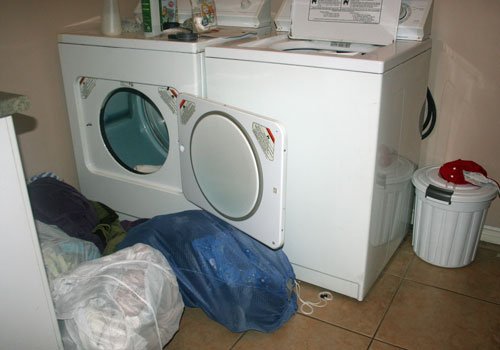
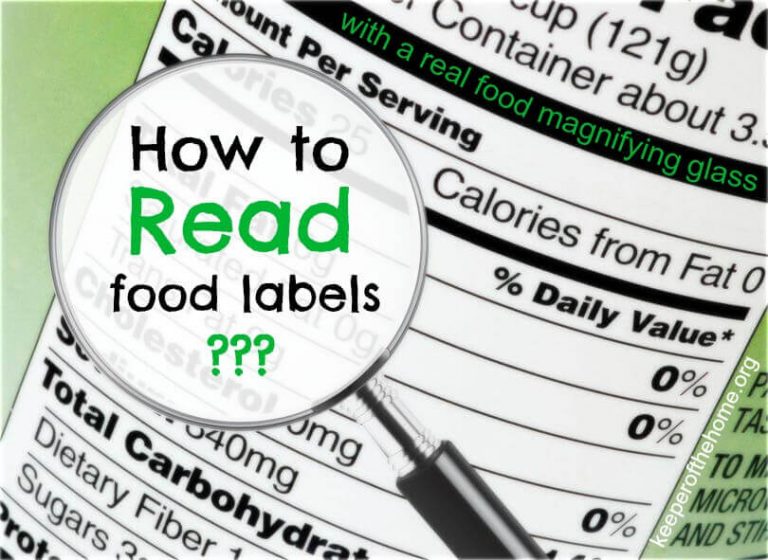
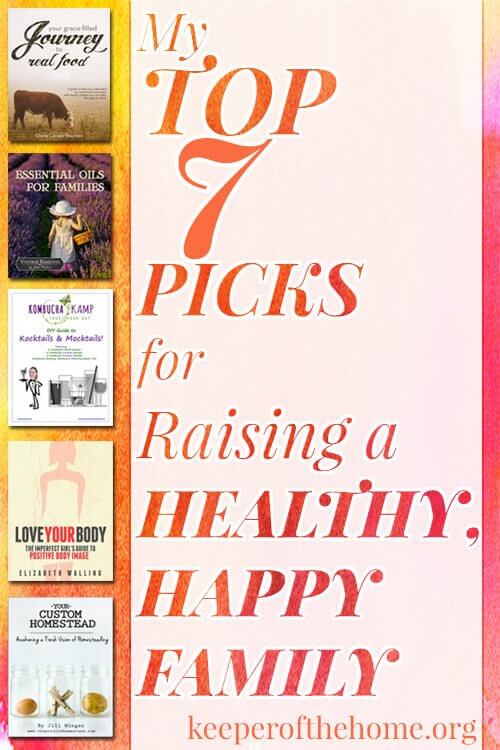

I greatly appreciate these thoughtful insights into the mindset of extreme coupon users. You have voiced many of the concerns I have had with the whole bargain-hunting. I love finding a good deal! But buying things you don’t need or have no use for just because you can pay pennies for them is not a ethical consumer practice; even if you intend to donate them! If a person shops at places where she views herself and the store in a battle to take advantage of one another, maybe she should be shopping elsewhere. I firmly believe the mentality of obtaining as much as you can for little as possible is not in keeping with a correct biblical worldview.
Very well said, Amanda! It is not keeping with a correct biblical worldview and is not wise stewardship. If we trust in the Lord to provide, we don’t need to be bound by worry and act out of the need to control our circumstances in extreme ways…and we need not stockpile or do everything in our power to take advantage of every loophole in coupon and store deals. (Now that being said, bulk buying and being well-stocked on food and other goods IS smart…buying 37 toothbrushes because we can get them for 2 cents a piece is another story!)
Couldn’t agree more with your post and the above comment. As our family questions more and more where our food and consumer products are coming from, we face a real challenge to purchase products that are inline with our ethical beliefs. I just couldn’t get peace with the extreme couponer mentality in regards to all of the processed foods and harsh chemical cleaners that are often the focus of extreme couponers in addition to all of the waste that those products contribute to our landfills. Thanks for challenging all of us to think harder on this issue!
I am very passionate about challenging others to see the big picture, so I hope I have done that. 🙂 It’s all about the big picture. I personally only rarely use coupons (for the reasons you mentioned…processed foods and harsh chemicals), but I think they can be valuable when we come across coupons for real foods and products that we would normally buy. I have only recently been introduced to the “extreme” couponing mentality and I was appalled at the entitlement mindset that goes along with it. It also gives a bad name to the legitimate couponers who use them appropriately/ethically.
Thanks so much for this article. I too, look for ways to feed our family healthy meals on a budget. I use coupons here and there, but I make sure to use them responsibly. We have lost sight on how we should eat the food that God has so graciously provided for us. Most coupons are for processed food and that’s killing us. I believe that using coupons can be used but, with integrity. Wonderful post!!!
I couldn’t agree with you more, LaShanna! It is certainly getting harder and harder for us to feed our families the food God intended when the extreme bargain-hunting mentality has eroded our society’s understanding of what food is. And yes, much of that food is killing us. It makes no sense to me to save a few cents by buying processed food when in the long run it will steal my family’s health and cost us much more in medical expenses.
I love this post! It’s what runs through my mind every day and every time I try and explain to someone why I buy organic, sustainable and well-made products. Thanks for posting!
Thank you! I have almost given up on trying to explain in person to those closest to me why it’s important to buy quality food. It seems that my reasons never trump that “buy the cheapest possible at all costs” mentality. 🙁
Great post. Thank you for expressing your concerns, as I share many of them, but don’t have the gift of expression as you do.
Oh, thank you. Your words are so kind. 🙂 I’m glad you agree with where I’m coming from and I hope we can challenge more to look at the big picture.
I am in no way against using coupons in the way they are intended,but the “extreme couponing” mindset and the “let make money” off of our shopping trip kinds of turn me off.
I know some of the “extreme couponners” will donate what they got “extra” for food banks etc… but others will use their purchase and sell them in yard sale to “make extra money” so they are selling item they they got for free or close to nothing a little cheaper then what the store sell them for and make some money.
Then go on saying that it’s a job, but I can’t understand why someone can in their clear conscience do this. I don’t know if it’s illegal or not, but it’s probably in the “grey” area!
Wow. I knew about the donating of items, but I wasn’t aware of the selling of items obtained for nothing or close to nothing! That’s just terrible. Some couponers admit what they do is like a part-time job. I understand the need to bring in an income, but when they go about it this way, that only takes away from the jobs available in general. If we would only be willing to pay for what we get, there would be more work available on the other end…meaning stay at home moms might not have to do the part-time couponing “job” if their husbands were employed by a company that could pay it’s employees well or was able to start a business of his own and sell products that people would buy based not on price alone but quality and craftsmanship as well.
Thanks for this post, Courtney. I totally feel the same way. I wrote a column for my newspaper last year about how I’m not an “extreme couponer.” Most of the food really is so unhealthy! I like to shop clearance produce and buy in bulk. I am definitely still learning!
I am still learning as well! All of us are in different stages along this path, but hopefully more will start to look at the big picture and question some of these practices. It’s very important that I stick to a tight budget with little wiggle room, but when I share with others that I don’t typically use coupons, they seem to think that means I don’t care about saving money. So not true! I just know there are smarter ways (like bulk buying!) and that buying basic whole food ingredients is usually cheaper than processed food anyway. I’d love to read your newspaper article!
I have had those same thoughts before. So many of us just want a bargain. What we need to do more often is just simplify our lives which includes mealtime! Simple wholesome meals can be very affordable, and avoiding the costs of medical care due to eating cheap or “free” food is also a cost many of us don’t count! Thanks for your insight today.
Very true, Maris! We do need to simplify our lives, and it is easy and affordable to serve simple, wholesome meals. (As I wrote about before but didn’t mention here, eating nourishing foods fills us up much better than nutrient-lacking processed foods, so we don’t need to eat as much.) And it’s important to consider those medical costs that will result from eating poor foods and I wish more would see that.
I’ve never been a couponer – it takes too much time. I have found that with my precious resource, time, I can save our family money in other ways instead.
In regards to keeping our food budget down, there are a few things our family does: We have a small garden for homegrown veggies (eat fresh in summer, and we freeze/can left-overs for use in winter months), my husband always checks out the “day old” section of the grocery store for bread & meats, etc. (which we can eat right away, or freeze for extended shelf life), we also have backyard chickens that provide us a good source of free protein (eggs!)
Those are excellent ways to be wise stewards of our money (and health)! I want chickens! We’ve tried to get our city to change the ordinance to allow it, but no success. Some day we hope to homestead and provide for much of our own food off our land…not to mention the perks of fresh, raw milk. Our garden gets bigger and better every year, but we still have a ways to go. And I need to can more than I do now, like you do.
I got into couponing when I watched the first extreme couponing episode. My family never couponed, so I never realized how much coupons could help you save. I will admit I became a bit of a fanatic about it. Then after about two months of hard-core couponing I realized it just wasn’t worth it. You spend so much money on newspapers or ink/ printer paper for online coupons. Also, most coupons are for processed foods. Sure getting “home” products for cheap are nice, but when it comes to food I don’t need 100 frozen dinners or cookies. Since I mainly cook with whole foods, I was noticing that I was just wasting money in the end.
So now I coupon in moderation. If I need something that I can print a coupon for (I no longer get coupons through the newspaper) then I will print one off for what I need to save a bit of money. In the end it’s all about moderation and learning what is necessary for your family and not just stocking up on things you don’t need because they are close to free.
I have heard many say how extreme couponing changed their lives for the worse and I’ve heard some sad stories. I’ve never seen the show “Extreme Couponing” as we don’t have cable, and I fear that if I found it online I’d just get angry, like I did the day I saw an extreme couponer tout the benefits of her methods on our local PBS station.
I agree that the can be used wisely in moderation and as intended. I haven’t come by many for quality foods, but I am happy when I do. Sometimes it can make sense to use coupons for toilet paper and things like that, too.
I also factor in the cost of ink and rarely print coupons, the big exception being my prized Hobby Lobby coupons, in which the cost of the ink is justified. 🙂
hear hear on Hobby Lobby coupons!! Also the Stoneyfield yogurt coupons I get once a month off their website… $1 off a pack of organic yogurt is always welcome!
I found this very interesting because I just came back from the grocery store where I used a handful of coupons. My local grocer is having an annual store wide sale that puts lots of canned goods on sale. There were many “bargains” to be had that could have been free or close to it but I just don’t think the value I would get financially would outweigh the poor quality I would be getting. I value quality organic ingredients, so even though I could get a can of chicken noodle soup for $.25 I’d rather roast a chicken on Sunday, use the carcass for stock and the leftover chicken to make soup. Add in a couple organic veggies herbs from my garden, homemade or store bought noodles and have a quality soup that I can freeze into individual portions. This soup is probably a little more expensive and obviously more work but still frugal and so much better for my family. I used coupons today for a couple products that I think are good for me and have value. I didn’t get anything for free but I did save money, just as they were intended.
Exactly, using them as intended is wise. And I think that making stock and soup the way you mentioned (how I make it also) is cheaper than store-bought. Using the whole chicken and making stock from the bones goes a long way! Yes, more work, but I’d rather put the time into preparing whole foods and invest in my family in the kitchen at the same time, all of us participating in food preparation.
Thanks for a great post. I totally agree with your perspective. I have struggled at times thinking I should really check into it more just because our family is really having a rough time right now. But I know that feeding my family wholesome food is much more important than having the “extras.” I also appreciate the bigger picture of what super couponing does to the whole cycle.
I couldn’t agree with you more Heather! Well said:)
I, too, must find ways to save money, as our budget is very tight. It’s not optional here. 🙂 But there are so many other ways, and I also can’t compromise on my values. I’m glad you, too, see that cycle!
This is a fabulous article and very well written – however, I see things from the other side. I’ve used coupons my entire life ( my mother taught me) and you could say at one point I was addicted to them. At this point in life, I use coupons rarely because of how we eat and live now, but I do still enjoy teaching people how to use them to get good deals….toilet paper, tissues, and other things are still needed – even if you live a whole foods lifestyle.
Yes, I have issues with ONE person clearing the shelves at a store to stockpile their own home. I do not however, have issues with a struggling mom getting her one or two for free. Some manufacturers actually put coupons out which will make the product FREE – and they know that. These stores offer double coupons and BOGO to bring people into their store. They know they’ll lose a bit of revenue here and there. Will I go into a store and clear the soap shelf because it’s free? Nope. But, I”m very glad to know that someone else can get something for free if they need it.
I will also admit that my life now is much easier – just watching for sales – instead of waiting for coupons and trying to match them to various stores all over town. It’s liberating for me. But, I do know that coupons have their place for the struggling mom and I don’t think they should be discounted.
Thanks for a great perspective!
I agree. I need to look for ways to save money wherever I can, so I understand what you’re staying and agree with you. Stores and manufacturers do have incentive to offer products for free or close to it at times and will absorb the loss for benefit of future gain (if they’ve gained a new loyal customer for instance, or even the “bait and hook” method). I wish this were not taken to the extreme by a select few who thwart these intentions.
And I also think there would be fewer struggling moms if this cycle were stopped. If we as a society as a whole valued quality, companies would employ more people and pay better and more families could make a living from small businesses (and family farms) if they didn’t have to compete with China, factory farms, etc. etc. . It’s hard to see this big picture when we are struggling and have a limited budget, though! I admit that.
I totally agree with your reply, the struggles in our economy are directly affected by businesses/corporations sending production overseas for cheaper labor.
It almost seems as though extreme couponing can become an addiction! The thrill of the chase becomes the driving force. What a refreshing post Courtney! I am so happy to read ideas like these:)
I have heard from so many that it can become an addiction! I read an e-book a while back that really hit on this idea of it becoming an addiction and stealing precious family time.
Here is the link: http://thepeacefulmom.com/2011/08/19/free-e-book-save-more-clip-less/ Now, I admit, I haven’t read the book in its entirety, just skimmed it and read relevant parts, but what I found interesting was how she compared her experience with extreme couponing to a drug addiction! The book is free if you follow on facebook I think.
Thank you! These are thoughts I’ve had as well and I appreciate how well you articulate them. So glad to hear that others agree! It gives me the courage to share this perspective with people around me — including my husband! Once in a while he’s asked why I shop at the more expensive local grocer rather than Walmart or why I don’t do extreme couponing, but to me they are ethical rather than financial choices. If it means we can’t splurge as often for ice cream and other food extras because we hit our budget sooner, that’s okay by me too, since I believe treats should actually be a treat, not a day-to-day thing. You are right that the big picture is what we need to keep in mind!
I am grateful that my husband shares my perspective and values quality food over junk. He sees all the ways I save money wisely and sometimes tells me he’s very grateful (and amazed!). It’s hard when so many others don’t see this, though.
The ethical perspective is so important in the long run, and if we all shared that perspective, the big picture would look a lot different, wouldn’t it? 🙂
I, too, agree that extras like desserts are just that – extras!
Thank you so much for tackling this topic! Extreme couponing became big just after I got married. I have literally struggled with GUILT over feeling like I *should* be using those practices to be a good steward of our finances, but something always felt wrong about it. In the end, my desire to feed our family whole foods won out and I dropped the idea, but I’m thankful to have some more talking points to share with friends and family if asked. great post.
Thank you. I’m glad you can use some of these points when sharing your reasons with family and friends. I struggle with reasoning with family and friends sometimes. I think some of that helped fuel this post, putting my thoughts into one place. 🙂
The ethical considerations for extreme couponing discount that lifestyle entirely for me, and one of the big things with even appropriate coupon use is the temptation to buy processed foods or foods (and other things) that I never planned to buy to begin with and really shouldn’t. Not that they aren’t useful in moderation, as I believe they can be.
I understand the guilt you speak of! Stephanie shares many great tips for spending less wisely in her book!
Thanks for the great reminders. 🙂 I always get in trouble for leaving the coupon in my pocket on accident, anyways…
Very, very well said. Not just about coupons but about valuing quality over quantity/cheapness. I looked into couponing but it takes a lot of time and most of the products are junk. The same goes for trying to find the cheapest option all the time.
This post articulates so clearly what I have felt in my heart for a very long time. Thank you!
Great article, very well written. It makes me think about the bigger picture and what is best overall. It’s a great reminder to remember the important things in life and not getting caught up in the “extreme couponing.” Your article is a blessing, thank you!
I’m so glad it was a blessing to you. My hope was to bring the big picture to light. 🙂
I LOVE this post. It states simply & persuasively many of the questions & thoughts I’ve had swirling in my head. I think you’ve hit the nail on the head about our obsession with “cheap” over quality, especially in the food area. One way I’ve found around this trap is to emphasize quality over quantity. Do I really NEED 10 bath & shower products? Not really. I can either make them myself or buy a concentrate that I dilute (less packaging & water cost). So I spend the same amount as if I’d used double/triple coupons, but I’ve skipped the waste, the harmful chemicals, and I haven’t short-changed anyone on cost. Baking powder, vinegar & essential oils are always pretty inexpensive!
Similarly with clothes I don’t NEED 20 outfits for my 2 year old. We wash laundry 1-2 a week, so at most she needs 7 outfits + a church outfit. First of all I either make them myself (usually using recycled material like daddy’s old shirts) or buy them consignment, or enjoy Grandma’s gifts, and second of all I try to only buy brands that we know will last through many children/washings, and/or that are made fairly.
The same thinking is applied to our books, toys and food– get the minimum, get quality, and take care of it. The side benefit is FAR less clean up and clutter! I also feel like having less makes us less “owned” by our possessions. We pay a fair price for what we have (“the worker is worthy of his wages”), we enjoy it, and we use it thoroughly. No couponing needed. 🙂
I’m glad my point got across as I hoped it would, “simply and persuasively” challenging others to see the bigger picture. I agree with you completely and I must say that you’ve added several great points that I was actually planning to expand on in a future post! For instance, a few basic, simple ingredients can be used to make so many things homemade AND at a fraction of the cost of the expensive toxic stuff. (We use castile soap for many things – one big bottle purchase lasts forever…less waste and less cost.) Same with baking soda, vinegar, and essential oils.
Clothes – I like to keep things as simple as possible there, too. Our clothing budget is TINY. Most would probably laugh at hoe small it is. My husband and I rarely buy new clothes, and when we do, we like to go for basic and classic staples that will go with everything and last for years. For the kids, they tend to wear a few favorite comfy outfits most of the time anyway! And quality does matter. Wal-mart clothes rarely make it through one child, whereas better quality brand last through 5 or 6 or more children. I buy most clothes second hand, and I have also been blessed with many hand-me-downs. Grandparents like to buy clothes, too. 🙂
For books, there are so many cheap ones out there – in how they’re made and by their content! I prefer to build a collection of the good ones. And I also love hand-me-downs and second hand in this area, too!!
I’ve been a “couponer” off and on for about 2 years and was and still grateful to know how to match the coupon with the sale. At the time I learned, from a much more experienced and dedicated couponer, I had a difficult time with much of the reasoning behind this person’s thought process. I’m not judging her as I have great respect for her as a strong Christian woman but couponing almost seems to be very American in it’s quick fix, instant gratification and honoring of stuff mentality (I am American and Christian btw!). I think we lack the homemaking skills, DIY initiative and desire, and stewardship of resources that weren’t just skills but necessities for our grandmothers’ generation – as a whole (many exceptions I’m sure with this group of readers). Teaching our children homemaking, homesteading, self discipline to make do and do without at times are part of the cultural changes that accompany the ideas of this post, in my opinion. Done venting… Thanks for your post. Will be bookmarking for future reference. 🙂
Oh my gosh, Beth! You hit the nail on the head. I couldn’t have said it better myself. 🙂
I just love the picture of the apples on the truck. So simple.
I’ve discovered that feeding my family healthy meals is my priority. Sometimes it does cost a little more to pick an organic option, or certainly antibiotic free meat, but I say it’s a cost for preventative medicine instead of treating healthy issues down the road.
I agree 100% with this post. I have been bothered by the idea of extreme couponing, yet struggling with the idea that maybe I should spend more time couponing in order to save my family money. However, many of the coupons out there are for products I do not purchase, especially the food items. Plus, like you I believe in paying, even paying a little more for quality! Thank you so much for this article. It has helped clarify my thoughts around couponing.
Very relevant post. It is true that our farmers produce an abundance of food (both high quality and comparatively low quality) rather inexpensively compared to other countries. We in America spend on average of only 6% of our disposable income on food at home. Compare to these countries: Germany 11%, France 14%, Mexico 22%, China 25%, and India 40%. Rather than seek to spend even less, we really should be grateful, and act on our gratitude with the dollars we spend on whole, nutritious food, and to invest in the areas of agriculture that our serving our needs as persons, and not only as dollar-driven consumers. It will definitely bolster our health and the health of our economy.
I used to coupon – but haven’t really in a lot of years. I buy very little that is name brand and it just isn’t worth my time. I also try to shop at local stores but sadly there aren’t any near me anymore so I not only pay more but I have to spend more in gas to get there. I refuse to shop at WallyMart – everything about the superstore and its national and international policies angers me. I have actually lost friends and been called elitist because I was willing to pay more somewhere else for the same things. sigh.
Great post!! You articulated so much of what was swirling around in my head.
I stumbled upon this site during a late night nursing session. I have to say, being a couponer myself (though not extreme by any means), your article makes me think. And I definitely cannot argue your heart or tact. I’m a stay at home mom of a 10 month old baby, and being a new mom and wife, and only 23, I notice myself getting caught in trends that I perceive will make me a better wife/mom. What intruiges me about whole foods is it’s a lifestyle used over many generations. Since I’m in control of my family’s eating and household products, I want to do what’s best for them. It’s all pretty overwhelming. 🙂
What a relief to read your article! I’ve never felt comfortable with extreme couponing and never had the mental stamina to deal with it. I’m all in favor of using a coupon for something I actually buy and sometimes I go to vendor’s websites to seek out coupons for things I buy consistently. I could never get rid of that guilty feeling, though, that I wasn’t doing all I could to save money on groceries. What you say gives me a peace of mind, because I am doing the best I can and am more interested in quality than quantity. Just because something is free or nearly free, doesn’t mean it is worth it. I have been slowly teaching myself to say NO to free stuff too. Free stuff just clutters up our house and detracts from the simplicity I’m fighting to establish!
Excellent, excellent!! I was intrigued upon first hearing of the extreme couponers a few years ago- but on closer inspection, discovering that these women are willing to feed their families whatever garbage they can get for free meant this would never work for me. It was a joy to read your very well articulated post on the matter. Thank you!!
I agree that there needs to be balance. There are some that use the coupon strategy to be greedy and are not making the best, most wholesome choices for their families. However, I can’t agree with everything you assert here. You assume that because I don’t want to spend a lot of money that it’s a bad thing. Since when is it bad to spend less in one area so that I can give more to another? For example, I’d rather purchase my oatmeal at Aldi for 1.99 for 40 ounces (when I could purchase organic for 1.99 a lb). Choices like this one enable me to give more to my church’s goal of building a well for a village in Ghana. Yes, I need to consider how best to feed my family, but I also need to consider that there are others who don’t have their basic needs. I would rather spend less on myself and my family in lots of areas in order to give to those who don’t even have the choice of organic or non-organic, much less the variety of foods my family has at our fingertips. I guess what I’m saying bottom line is that God is the Author of our lives and resources. While I agree we need to make smart, healthy, responisble choices, we also have the responsibility to enter into the needs of others, considering them as more important than ourselves. I guess I just feel like this mentality of insisting on the highest quality of our food sometimes (often?) translates to the thought patterns of giving less consideration to those who literally have much less than we do. Excess is excess, no matter how we spin it.